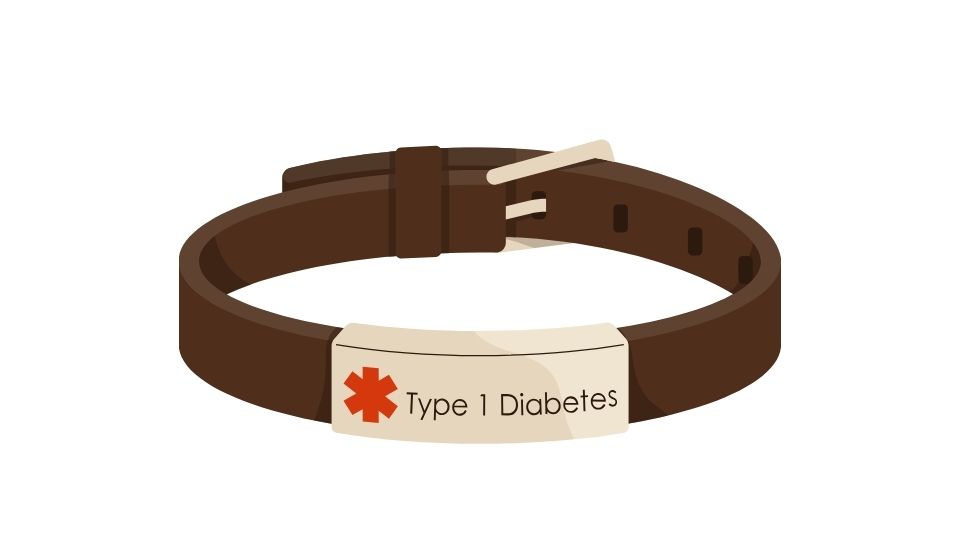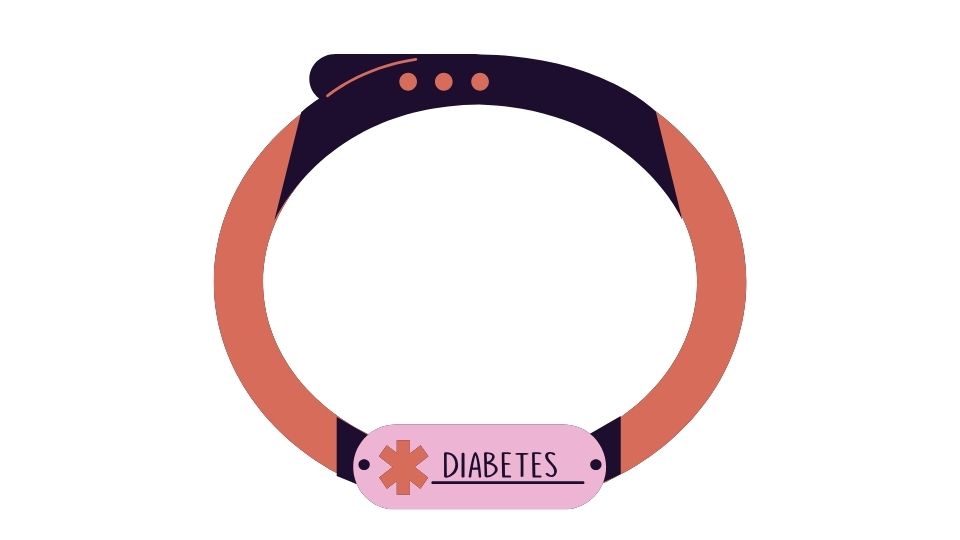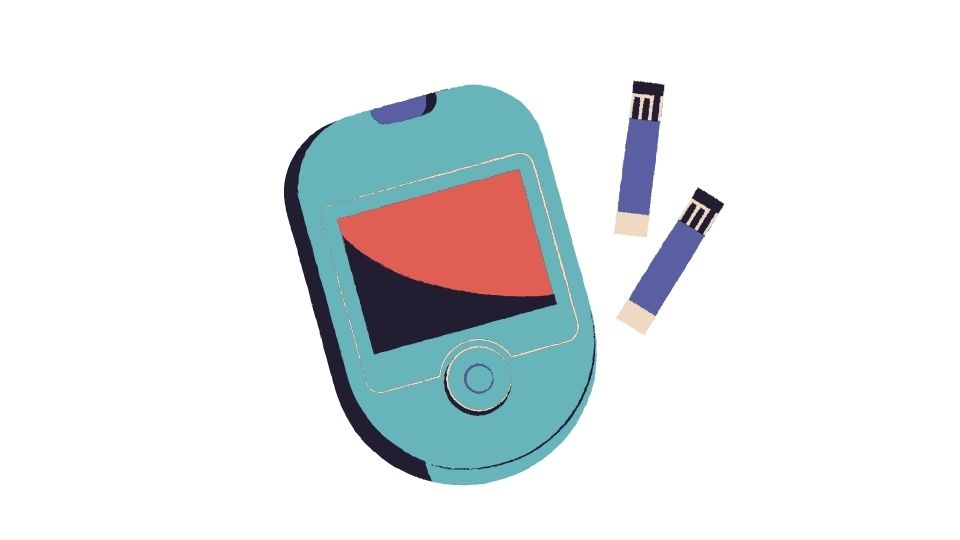Is Protein Powder a Good Choice for Diabetics?

Can you drink protein powder if you’re diabetic? The short answer is yes – but like most health questions, it’s not that simple.
Protein powder can actually be pretty helpful for diabetics when used correctly, but there are some important things to watch out for. Let’s dive into what you need to know about protein powder and diabetes – with a healthy dose of my opinion sprinkled on top.
Protein Powder and Diabetes: What You Need to Know
Skip ahead:
- Benefits of protein powder for diabetics
- Risks to watch out for
- Best protein powders for diabetics
- How to use protein powder with diabetes
- My take on the whole thing
Benefits of Protein Powder for Diabetics

Blood Sugar Control (The Main Event)
Protein is basically a blood sugar superhero. When you consume protein with carbs, it slows down digestion and helps prevent those nasty blood sugar spikes that make diabetes management so challenging.
Studies show that whey protein in particular can reduce post-meal blood sugar levels by up to 20% in some people with type 2 diabetes. That’s not nothing!
When you add a scoop of protein powder to your oatmeal or smoothie, you’re essentially putting a speed bump in front of the glucose, giving your body more time to process it properly.
Weight Management (Actually Important)
Let’s be real – weight control is a huge factor in managing type 2 diabetes. And protein is your best friend when it comes to feeling full.
Protein increases something called satiety (fancy word for feeling satisfied after eating), which helps you eat less overall. When you’re less hungry, you’re less likely to reach for those carb-heavy snacks that send your blood sugar through the roof.
One major review found that higher protein diets can significantly improve body composition and help with weight loss – both critical for diabetes management.
Muscle Maintenance (Especially Important as You Age)
Here’s something most people don’t talk about: diabetes increases your risk of muscle loss, and getting older makes that even worse. Double whammy.
Adequate protein intake is crucial for maintaining muscle mass, which in turn helps regulate blood sugar (muscle tissue is metabolically active and helps with glucose disposal).
For older adults with diabetes, getting enough protein can be challenging, and that’s where protein powder can be a convenient solution.
Risks to Watch Out For
Hidden Sugars (The Sneaky Saboteur)
This one drives me crazy. Many protein powders are loaded with added sugars or artificial sweeteners that can spike your blood sugar or cause other health issues.
I’ve seen protein powders with up to 23 grams of added sugar per scoop! That’s basically a candy bar with some protein thrown in.
Always check the ingredients list and nutrition facts. If you see terms like “dextrose,” “maltodextrin,” or “fructose” high on the list, that’s a red flag.
Kidney Concerns (Proceed with Caution)
If you have diabetes-related kidney problems, you need to be careful with protein intake. High amounts of protein might increase the workload on already-compromised kidneys.
This doesn’t mean you can’t have protein powder, but it does mean you should:
- Talk to your doctor first
- Monitor your kidney function regularly
- Keep total protein intake at recommended levels
According to the National Kidney Foundation, people with kidney disease often need to monitor protein intake carefully.
Relying Too Much on Supplements (Not a Meal Replacement)
Protein powders are supplements for a reason – they’re meant to supplement a healthy diet, not replace real food.
If you’re chugging protein shakes instead of eating balanced meals, you’re missing out on fiber, vitamins, minerals, and other nutrients that are crucial for diabetes management.
Best Protein Powders for Diabetics

Whey Protein (The Gold Standard)
Whey protein is derived from milk and has been the most extensively studied protein supplement for diabetes. It:
- Stimulates insulin secretion
- Slows gastric emptying
- Contains all essential amino acids
One clinical trial found that taking whey protein before a meal reduced post-meal blood glucose levels in people with type 2 diabetes.
Plant-Based Options (For the Dairy-Free Crowd)
If you’re lactose intolerant or vegan, plant-based proteins like pea, rice, hemp, or soy can be good alternatives:
- Pea protein: Complete amino acid profile and generally well-tolerated
- Rice protein: Hypoallergenic but not complete (missing some amino acids)
- Hemp protein: Contains beneficial omega-3 fatty acids
- Soy protein: Complete protein but some people avoid it due to concerns about hormonal effects
Plant proteins might not have the same immediate impact on insulin as whey, but they can still be part of a healthy diabetes management plan.
What to Look For on the Label
When shopping for protein powder as a diabetic, look for:
- No added sugars (absolute must)
- Minimal ingredients
- No artificial sweeteners (debatable, but I avoid them)
- At least 20g of protein per serving
- Low carbohydrate content (less than 5g per serving ideally)
How to Use Protein Powder with Diabetes

Timing Matters
The when is almost as important as the what. Consider using protein powder:
- Before meals: Taking protein 15-30 minutes before a carb-heavy meal can help reduce the glucose spike
- After exercise: Helps with muscle recovery and can improve insulin sensitivity
- As a snack: Between meals to maintain stable blood sugar levels
Start Small and Monitor
Don’t just dive in with massive amounts of protein powder. Start with a small amount (like half a serving) and monitor your blood sugar response.
Everyone’s body responds differently, so what works for someone else might not work for you.
Use your glucose monitor to track how different protein powders affect your blood sugar levels, and adjust accordingly.
Mix It Right
What you mix your protein powder with matters tremendously. Avoid:
- Fruit juices (sugar bombs)
- Sweetened plant milks
- Adding honey, maple syrup, or other sweeteners
Instead, try:
- Unsweetened almond milk
- Water
- Plain Greek yogurt (for extra protein)
- A small amount of berries (lower sugar fruits)
My Take on Protein Powder and Diabetes

After diving into the research and considering the pros and cons, here’s where I stand:
Protein powder can be a valuable tool in your diabetes management toolkit – but it’s just one tool, not the whole solution.
I think of it like this: protein powder isn’t going to fix poor dietary choices elsewhere, but used strategically, it can enhance an already solid nutrition plan.
For most diabetics, I’d recommend:
- Get most of your protein from whole foods (eggs, fish, lean meats, legumes)
- Use a high-quality, sugar-free protein powder as a supplement when needed
- Always pair protein powder with regular blood sugar monitoring
- Consult with your healthcare provider, especially if you have kidney issues
The reality is that managing diabetes is about the overall pattern of eating, not any single food or supplement. Protein powder can support that pattern, but it’s not a magic bullet.
And let’s be honest – there are much bigger fish to fry when it comes to diabetes management. Things like overall carbohydrate intake, regular physical activity, stress management, and medication adherence are going to have a much bigger impact than whether or not you add a scoop of protein powder to your morning smoothie.
That said, if you’re doing all the big things right, protein powder might be that 5% edge that helps you maintain better blood sugar control throughout the day.
Just remember: read the labels, start slow, monitor your response, and keep your doctor in the loop. That way, protein powder can be a helpful addition to your diabetes management plan, not a hindrance.

